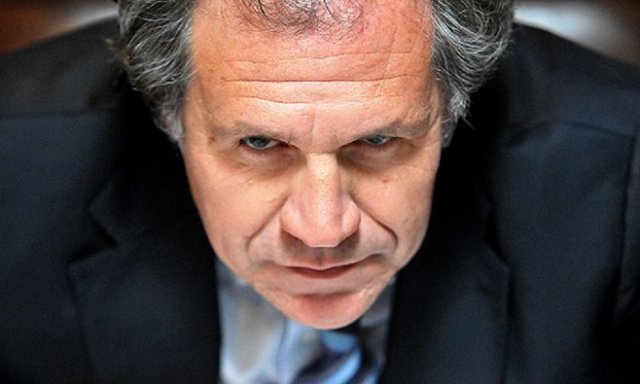
The Organisation of American States (OAS) and its current secretary general Luis Almagro has pursued policies that aggravate the current crisis in Venezuela.
Rather than providing a way to help mediate the bitter conflict in Venezuela, Almagro has joined one side.
The position of the OAS sadly reflects the longer history of the organisation. Since its founding in 1948, the OAS has served as an instrument to promote US Cold War policies and “free trade” initiatives in Latin America.
The OAS legitimated US intervention in Guatemala (1954), suspended Cuba (1962) and supported the US invasion of the Dominican Republic (1965). In contrast, the OAS remained largely silent as South American military governments disappeared thousands of people.
Almagro has maintained a conspicuous silence on dramatic issues occurring elsewhere in Latin America, including the death and disappearance of thousands in Mexico, the open persecution of journalists, and the attack on democracy in Brazil.
Venezuela’s problems are profound, but all flow from a dependence on petroleum exports. The oil dependency, evident throughout the twentieth century, fuelled a national myth that oil would spur modernity.
US officials recognised that the country’s model of development was unsustainable, even as they were promoting Venezuela as a model democracy.
While acknowledging that elites and middle sectors had benefited from oil, the United States National Security Council in 1974 concluded that “Uneven development has left other millions of Venezuelans living in untouched poverty, with so slim a stake in the existing system as to make economic reform and income redistribution imperative.”
Former president Hugo Chavez initiated important reforms and expanded access to oil profits, reaching new sectors of society — the core of resentment against his rule ― but never fully challenged the belief that oil would develop Venezuela.
Neither the government nor the opposition have addressed how to diversify the economy, tackle skyrocketing inflation, promote internal production, expunge corruption, invest in collapsing infrastructure, deter crime, or repair the country’s tattered social fabric.
The predicament for the opposition is that people who benefitted from the Chavez era reforms will not simply return to the barrios and resume the life that existed in pre-1998 Venezuela. Pressure for continued social reforms will only increase.
Efforts to forcibly topple President Nicolas Maduro by creating conditions of ungovernability (the so-called guarimbas) including the destruction of public and private property, accompanied by appeals for foreign intervention, condemn Venezuela to a future of social conflict and violence.
The opposition forces that engage in dog-whistle politics and do not condemn violence can hardly be expected to unite Venezuela and rebuild the nation.
Rather than taking sides in this bitter and difficult conflict, the OAS should join the efforts of the Union of South American Nations and the Vatican, condemn violence on either side, and promote dialogue in the country.
[Abridged from Venezuela Dialogue.]
Like the article? Subscribe to Green Left now! You can also like us on Facebook and follow us on Twitter.